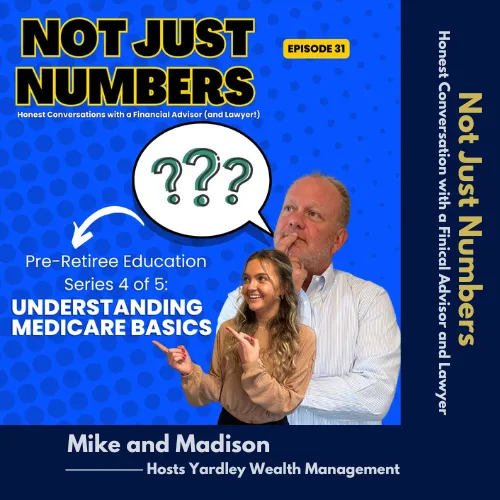Episode 31:Pre-Retiree Education Series 4 of 5: Understanding Medicare Basics
Hosts: Madison Demora and Mike Garry
Episode Overview
In this fourth installment of the Pre-Retiree Education Series, Mike Garry and Madison Demora break down the fundamentals of Medicare coverage. The episode provides a clear explanation of Medicare’s different parts, enrollment periods, and supplemental coverage options. Mike shares expert insights on making informed decisions about Medicare coverage and avoiding costly penalties through proper timing of enrollment.
Listen to Our Podcast On:
Timestamps
- 00:08 – 00:42 – Introduction to episode topic: Understanding Medicare Basics
- 00:43 – 01:05 – Understanding Medicare Coverage Types
- 01:06– 01:31 – Medicare Advantage Plans Explained
- 01:32 – 01:57 – Medicare Eligibility and Enrollment
- 01:58 – 02:22 – Supplementing Medicare with Medigap
- 02:23 – 02:50 – Medicare Parts A vs. Part B: Coverage
- 02:51 – 03:14 – Advantages of Medicare Advantage Plans
- 03:15 – 04:07 – Importance of the Initial enrollment Period (IEP)
- 04:08 – 04:31 – Medigap Policies and Their Role
- 04:32 – 05:13 – Deciding on Supplemental Coverage
Follow Us on Social Media
Stay updated with the latest episodes and news by following us on social media:



